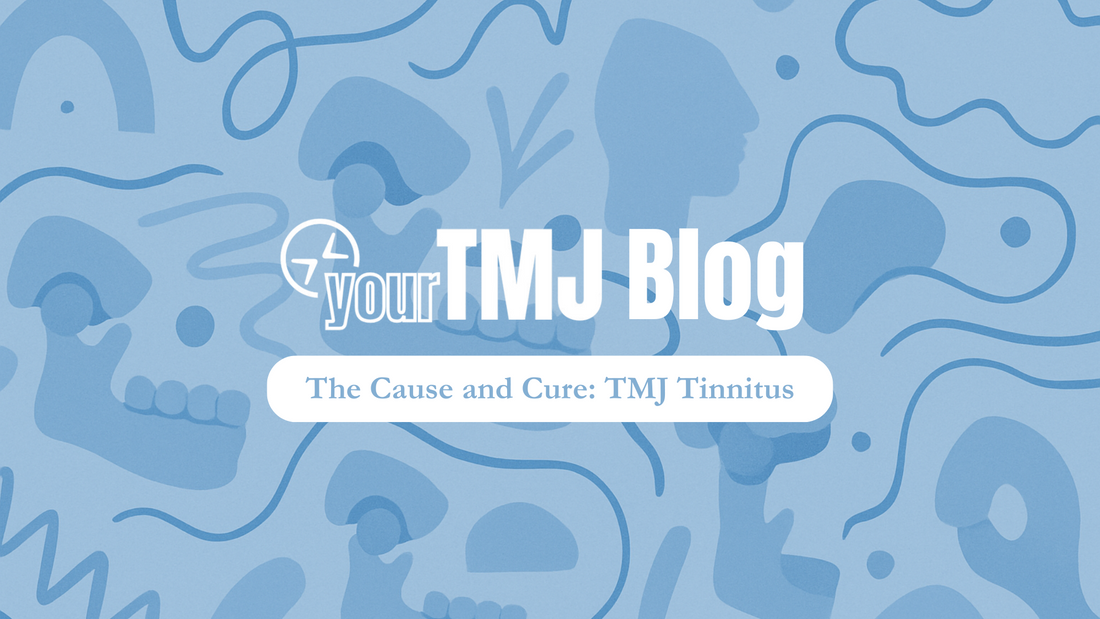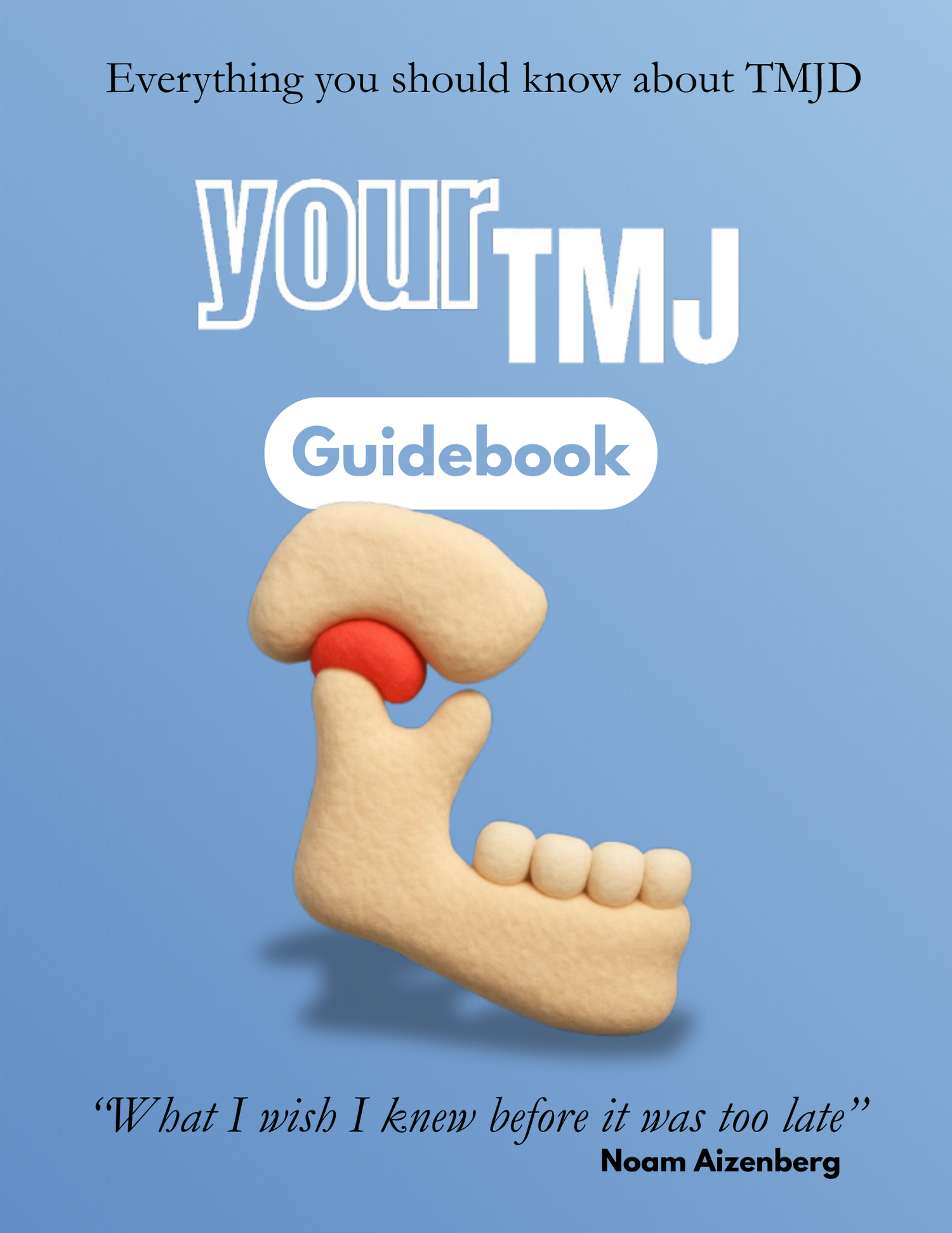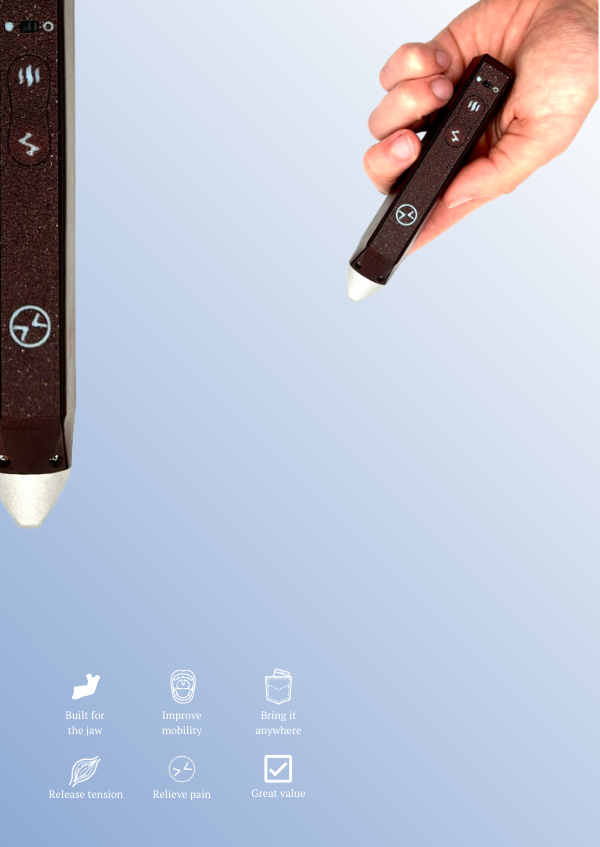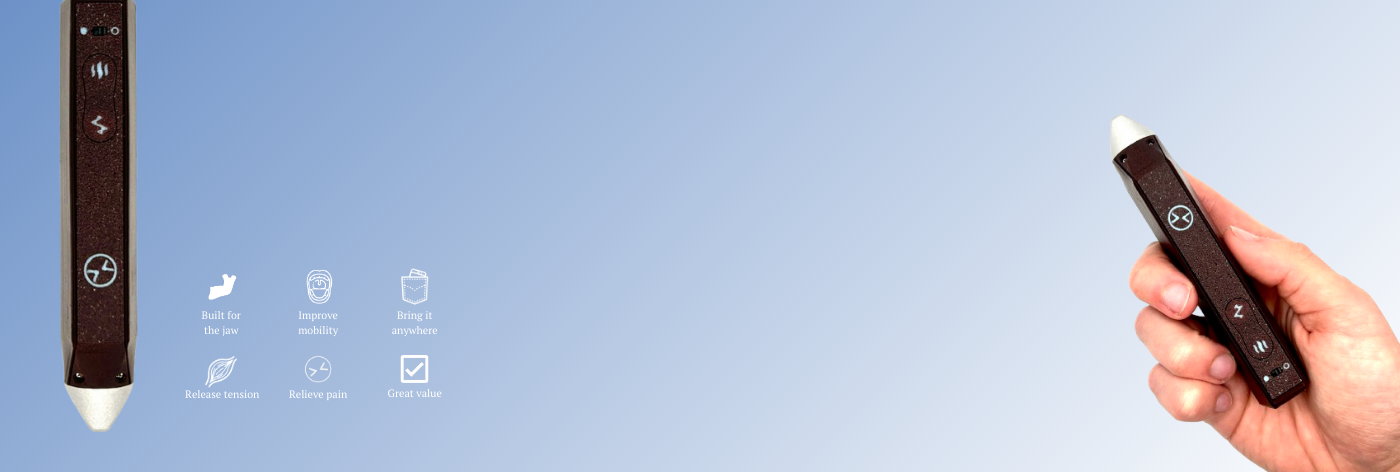The Cause and Cure for TMJ Tinnitus

Tinnitus is one of the strangest and most frustrating symptoms that can come along with TMJ Disorder. That constant ringing or hissing sound that seems to come from nowhere—not loud enough to be a crisis, but always there in the background, messing with your focus, sleep, and peace of mind.
And here’s the thing: in many cases, it actually has nothing to do with your ears.
In this article, we’re going to break down the most common causes of TMJ-related tinnitus, how to tell if it’s coming from your jaw, and most importantly, what can be done to reduce or eliminate it. At the end, you’ll also find a link to a free 76-page guidebook that dives even deeper into the mechanics behind TMJ and how to treat it from the root.
Why TMJ Can Cause Tinnitus
-
The ligament connection
The TMJ and ear are incredibly close together, which is why you shouldn’t find it surprising that there is a physical link between them.
One of the strongest links is the “oto-mandibular” ligaments (literally ear-jaw ligaments). There are 2, but the biggest culprit connects between the retrodiscal tissue of the TMJ and a little bone in the ear called the “malleus” that plays an important role in transmitting the vibrations from sound to the inner ear.
This may sometimes be the culprit in feeling ear related symptoms because if you stretch this ligament you’re throwing the very sensitive ear system out of balance.
-
The inflammatory connection
There’s a small bony gap located between the TMJ and the middle ear. It serves as a passageway for nerves and blood vessels as well as the disco malleolar ligament mentioned above. Because it’s a direct link between the TMJ and inner ear, it may become a pathway for inflammation to spread from the jaw joint to the ear.
It’s called the petrotympanic fissure, and when you deal with a bunch of inflammation in the TMJ, it can easily leak into middle ear structures and disturb the balances in pressure. Just keep in mind that this is a vast oversimplification.
-
Eustachian Tube
This is a small passageway that runs between the middle ear and back of the throat as a sort of air pressure valve for the ear. It’s why your ears feel full when taking off in an airplane. This tube is normally “closed” to prevent infections from spreading to the ear and for keeping the air pressure stable. But when the outside air pressure changes rapidly, you feel it; until you yawn, chew, or swallow, which opens up the tube to equalize pressure again!
Unfortunately for us, this tube runs very close to the TMJ. Even the muscles used in opening and closing the tube are linked to jaw movement. If they can’t contract properly to open, you can get pressure build up in the ear.
Tightness and inflammation can also mess with the nerves needed to operate it.
-
Nervous system
As mentioned, the trigeminal nerve has several branches that run near the TMJ. Importantly, the ones that control muscles responsible for controlling sound modulation in the ear.
It’s possible for these nerves to be compressed/entrapped by TMJ muscles or bones and cause tinnitus and pain. We can discuss further in the Trigeminal Neuralgia section below.
These ear problems can be pretty brutal because there’s not a lot of symptom relief out there. You have to work out the underlying problems with the TMJ or surrounding muscles. You can follow the postural and strengthening methods laid out in “the postural fix” section.
How to Know If Your Tinnitus Is TMJ-Related
Not all tinnitus comes from your jaw. But here are some signs that yours might be:
-
It started around the same time as jaw pain, clenching, or clicking
-
Moving your jaw changes the pitch or intensity of the sound
-
Pressing on the jaw muscles alters the tinnitus
-
You also have symptoms like headaches, ear fullness, or facial tightness
If any of that sounds familiar, there’s a chance your tinnitus is coming from TMJ dysfunction—not your inner ear.
How to Fix It (or At Least Reduce It)
Here’s the honest truth: tinnitus is a complicated symptom. And in some cases, it may not go away entirely. But when it’s caused by TMJ Disorder, it often responds better than other types—because it’s rooted in mechanics, not necessarily nerve death or hearing loss.
Fix Jaw Posture
Most people with TMJ issues have a retracted jaw—meaning their lower jaw sits too far back in the joint socket. This compresses nerves and tissues behind the joint and can trigger tinnitus. Moving the jaw slightly forward (2–4mm) during rest can relieve that compression. Combine this with nasal breathing, lips sealed, and tongue suctioned to the roof of the mouth.
Reduce Muscle Tension
Use heat, self-massage, and gentle stretching to reduce trigger points and chronic tightness in the masseter, temporalis, and pterygoids. When these muscles calm down, the nerve signals they send out—including the ones that confuse your ears—start to settle too.
Strengthen Jaw Muscles
A lot of people think they have tight jaw muscles—but sometimes they’re actually weak. Especially the lateral pterygoids, which are supposed to pull your jaw forward when you open. Weakness here leads to jaw instability, poor movement patterns, and nerve compression that can trigger tinnitus. Exercises like resisted jaw opening and forward-controlled closing can make a real difference.
Avoid Aggravating Habits
Stop clenching, chewing only on one side, nail biting, and especially sleeping on your back. These all worsen joint compression and can prolong or worsen tinnitus.
Consider Imaging or PT if Needed
If things don’t improve, you may need a CBCT or MRI to look at the joint directly. A TMJ-focused physical therapist or orofacial pain specialist can help guide treatment based on what they see.
The Bottom Line
TMJ tinnitus is real. And for many people, it’s reversible. But you have to stop chasing the sound itself and start fixing the system behind it. That means improving posture, reducing muscle tension, rebalancing jaw mechanics, and protecting your joint.
If you want a step-by-step breakdown of how to do that—from posture to exercises to root cause analysis—I wrote a free 76-page guidebook that lays it all out in detail.
Because the truth is, tinnitus doesn’t have to be permanent. And the best time to start treating it is now.




